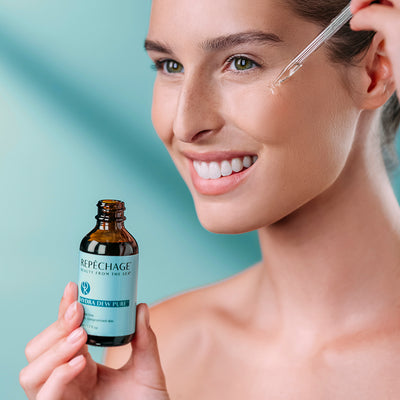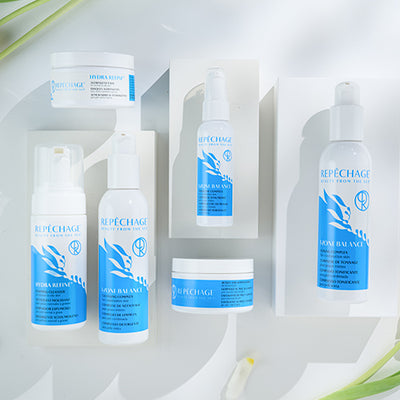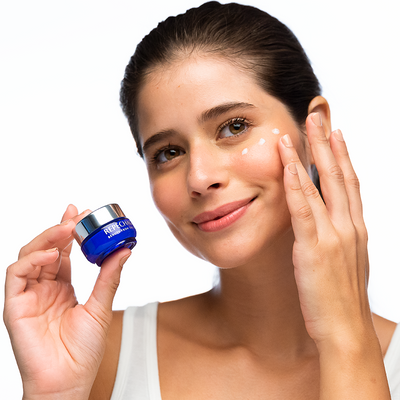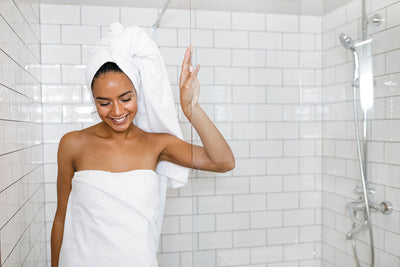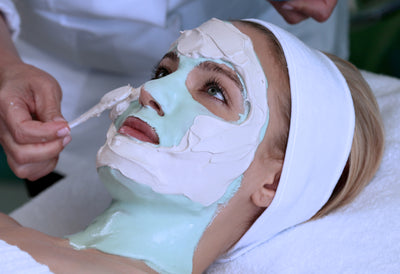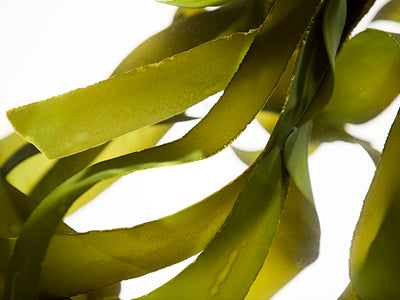Why Not to do DIY Skin Care

We’re sure you’ve seen a ton of DIY skin care mask recipes online, and you may have even tried some yourself with no harm done, but think twice next time. You could be doing serious damage to you or your friend’s skin by spreading these untested masks. And although you are involved in the process from A to Z, you may not be seeing all that’s in front of you, for example…
- Can you see the germs cover your ingredients when your friend in the room with you sneezes and doesn’t cover their mouth?
- Can you see the bacteria spreading when you go to mix your concoction with the spoon left on the kitchen counter, which is one of the dirtiest places in your home?
- How about the mold growth when you decide to store away your sensational new skin care creation? (You’ll be feeling a sensation alright…)
Mixing up a mask or scrub once in a while may be fun, but there are a lot of good reasons skin care is made under stringent, well-monitored, sterile conditions. These are the factors that may not be apparent, but a lot goes into the making of your jar of perfection that keeps you looking radiant every day.
Ingredients
Smushing grapes on your face isn’t the same as using grape seed extract, and shouldn’t be considered a replacement. Quality ingredients are the foundation of a trusted professional beauty brand, and we’re very meticulous about the ones we choose. Suppliers of raw materials test as per required industry standards and provide supporting documentation.
Testing
What could be wrong with buying common fruits and veggies to make a mask? Well, let’s say you’ve chosen an “ingredient” that hasn’t been sneezed on or mishandled too much, you bring it home, give it a rinse and start mixing.
Consider this: Non-organic fruits and vegetables in the supermarket are covered in pesticides, and a simple rinse won’t get rid of them (be wary of organic as well, winds can carry nasties from other fields onto organic crops). Not to mention the random allergens your food could be exposed to.
Have a peanut allergy? Better hope the berries you’re busting up weren’t shipped or stored alongside them, because that allergen is now all in your new mixture.
Cosmetic raw materials are carefully chosen and finished products undergo safety testing. They must also be produced in sterile environments. The people in the manufacturing facility wear single-use disposable gloves, hair nets and face masks. Your favorite face masks and skin care products go through the same process.
Consistency
For those who chance to make DIY skin care products, you may be expecting a beautiful, uniform cream or face mask that you can slather on, lay back and enjoy, but you’ll be in for a surprise. Cosmetics undergo stability testing to make sure they are the same consistency throughout, they are not separating, runny or lumpy, and generally don’t fall apart. DIY skin care means a mess: for your skin and for your living space. Skip the hassle and the risk, trust in a beauty professional and do it right!
Equipment
You may think your pro blender or hi-speed mixer is enough to whip up a moisturizer, but sorry to rain on your parade, it’s not. Even the blender you had to buy in installments because it was so expensive isn’t enough to handle this job.
Laboratory quality mixers and homogenizers, the things used to make your creams silky smooth, cost thousands of dollars. That’s just one piece of the puzzle -- we didn’t even cover hot plates or scales, which can cost you another few thousand dollars.
Now that you know the risks in DIY beauty care, you can begin to understand why cosmetic companies go through so much testing. We not only want to get it right, we need to get it right. Not just for our sakes, but for yours and the responsibility that comes when someone entrusts their skin with you.



